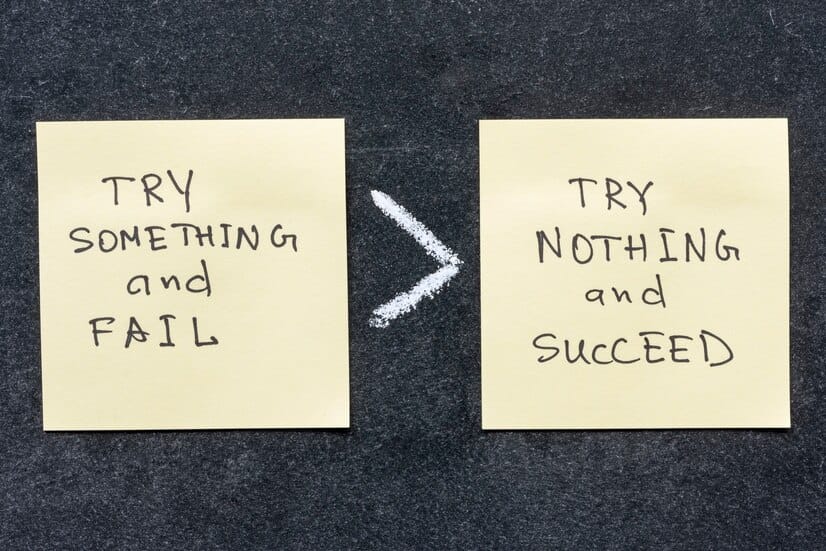What is the quickest way to get promoted?
Are you daydreaming about that next big promotion?
Whether you’re just starting out or you’ve been grinding for a while, the idea of climbing the corporate ladder is pretty enticing. But what’s the quickest way to get there?
To get a better grasp on how internal promotions work, check out my previous post on how people get promoted – it sets the stage for today's topic.
Now let's explore some practical tips and strategies to accelerate your promotion journey.
1. Find a Workplace with Plenty of Opportunities 🔍

To tell you the truth, the quickest way to get promoted is going to be very dependent on the business you work with. Wanna get promoted as soon as possible? Go where there are more opportunities for advancement.
Think bigger companies or organisations with multiple departments and a dynamic growth environment. In these settings, roles are constantly evolving, and new positions are regularly created. This means more chances for you to step up when opportunities arise.
Why? When you’re early in your career, the number of opportunities you attempt is often more important than how ready you are to take them on.
Imagine you’re in a large team where 10-15 promotion opportunities pop up each year. If you throw your hat in the ring for every single one, your chances of snagging a promotion skyrocket compared to someone who only applies for one... The more promotions you apply for, the higher your chances of landing one.
Sometimes, it’s about being in the right place at the right time. Larger organisations with higher staff turnover or frequent restructuring naturally offer more promotion opportunities. If you’re in a smaller team with fewer openings, you might have to wait longer for a chance to move up.
What to Do: If you’re ambitious and looking for rapid growth, consider whether your current workplace offers the opportunities you need. If not, it might be worth exploring larger companies or industries with more dynamic promotion paths.
2. Take More Shots 🎯
Applying for as many promotions as you can is a simple yet powerful strategy: the maths are in your favour. Plus, each application is a learning experience.

Even though you might not get the first 10 that you apply for, every single one of them is going to teach you something more about being ready for the next one. By putting yourself out there more and explicitly applying for those promotions, you're going to accelerate your progress 100%.
For instance, let's say you're in a bigger team with more people leaving and moving around, like I was talking about before. If there are 10 to 15 opportunities for promotion in roughly similar fields every year, and you put your name forward for every single one of them, you are going to do a lot better than someone who works on getting everything perfect and applying for just one. Statistically speaking, one from one is a lot harder than one from 15.
When you're early in your career, the number of opportunities you attempt is much more important than how ready you are to take those opportunities on.
Pro Tip: Don’t just apply blindly. Put deep focus and engagement in each application to highlight how your skills and achievements align with the new role. This increases your chances of success and provides that valuable feedback you need to improve your next application (and your career satisfaction overall!).
3. Be Front of Mind Without Being Annoying 👀

Visibility is crucial. You need to be known to the decision-makers, but without coming across as a nuisance. It’s all about finding that sweet spot where you’re present and clear about your ambitions without overstepping.
How? Consistently deliver more than what’s expected, volunteer for projects, and proactively solve problems.
This shows your capability and also makes your superiors see you as someone ready and willing to take on more responsibility.
4. Embrace the Power of Feedback 🗣️
Applying for promotions doesn't mean you're sending out applications and hoping for the best! You should always ask for feedbackwhen you aren't successful because that's going to help you with your next action plan on what you need to improve before your next application.
For instance, if you apply for a role and are turned down, ask your manager or the hiring panel what skills or experiences you’re missing. This real-world data is far more effective than guessing what you need to work on.
You might hear something like:
- Okay, we didn't hire you. You're not ready for this.
- What does this mean? I'm really good at what I do.
- Yeah, but we don't just need someone who's really good at what they do. We need someone who can do this, this, and this.
Okay, so now you know what's missing, and you can work on it.
If you're just preparing for the next one, and there's only one per year that you're going for, you're not getting enough feedback from the people who are making the decisions about you being promoted. You're making assumptions, and you're saying, "If I just do this, then surely someone will promote me into that", instead of getting real-world data from the decision-maker.
Unless you're getting honest validation from real people in the real world who are making decisions based on their incentives and motivations, then you're guessing. And that's not going to be quick and effective; it's going to be slow and frustrating.
5. Align Yourself with Company Goals and Values
Being in sync with your company’s mission and values can make a huge difference. When your personal goals align with the organisation’s objectives, it’s easier for decision-makers to see you as a fit for higher roles.
People who naturally align with the company’s culture tend to navigate challenges more smoothly and contribute more effectively to the team’s success. This alignment often makes them stand out as prime candidates for promotion.

6. Develop Emotional Intelligence &
Don’t Be the Lone Star 🌟🌱
Yup, technical skills are essential, but emotional intelligence can set you apart. Being able to understand and manage your emotions, as well as empathise with others, makes you a better team player and leader.
Work on your communication skills, build strong relationships with colleagues, and show genuine interest in others’ success. Soft skills can help you navigate workplace politics and build crucial alliances.
Here’s a bit of a paradox: sometimes being too good at your current role can actually slow down your promotion chances. Because if you’re the best, your company might hesitate to promote you, fearing they can’t replace you easily.
Solution? Don't play yourself down, but focus on developing your interpersonal skills and building others up. Mentor junior colleagues, delegate tasks, and ensure there’s someone ready to take over your current responsibilities when you move up. That shows your leadership potential and your capacity to see the bigger picture and act for the organisation’s success as a whole.
7. Be Prepared for When the Opportunity Strikes ⚡

You might not have control over when an opportunity arises, but what you can control is how ready you are when it does. When someone resigns, there’s a restructuring or a new role being created, you want to be the obvious choice.
The manager should immediately think of you because you've been doing great work. You make the decision easy for them because you're always prepared and ready to step up.
This is where the preparation work of creating visibility, communicating your goals, and making sure people know you're over-delivering without being arrogant really pays off.
That was my experience. I was ready for the promotion, and the opportunity came with a global restructure. They were changing things up, and for me, that was one of the greatest opportunities in my career. But for others, it meant losing their jobs and struggling from there. It's a complex situation - a great opportunity for those who are prepared, a difficult time for those who are not.
Your goal is to be in a position where, when something changes within the company, the decision-makers already see you as the perfect fit. You’ve been visible, you’ve been delivering, and you’ve made sure they know you’re keen to step up. Your name should come up in those conversations without hesitation - because you’ve been positioning yourself all along.
Final Thoughts
The quickest way to get promoted boils down to maximising your opportunities and being proactive in your career development.
Apply for multiple roles, seek feedback, align with your company’s values, and develop both your technical and emotional skills.
While factors like nepotism and bias can play a role, focusing on what you can control will significantly boost your chances of moving up the ladder.
So, don’t wait for the perfect moment - create it! Get out there, take those shots, and pave your way to that next big promotion.
Now, over to you! What are your thoughts on this? What's your secret to climbing the career ladder? Share your promotion experiences (the good and the challenging!) 👇
Good luck, and may the promotions be ever in your favour! 🍀
ABOUT
Helping young professionals identify their career direction, develop their skills, and achieve their professional aspirations.
QUICK LINKS







